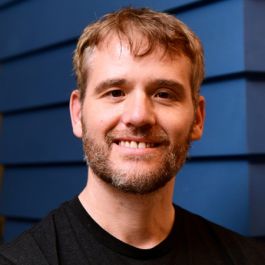Austin is the coolest kid on the tech block. $5.5 billion from 421 venture capitalist deals in 2021. Five times the national population growth rate. Zero state income tax. With a shiny new skyline and ongoing construction projects, it flaunts its fresh status as one of the fastest growing tech hubs in the US. But with its blossoming popularity, comes growing pains.
The housing market is now hotter than the Texan heat, setting new median home price records every year. Facing a possible erosion of cultural identity in the face of a tech incursion, Austin’s cultural trademark, “Keep Austin Weird,” has become a symbol of the city’s mission to balance economic influx with local pride. Scaling, as it turns out, is a balancing act for both the host city and its metropolitan settlers.
Fast-growing companies share many of the same concerns when it comes to accelerated expansion. In 2021, investors poured $321 billion into North American startups, according to Crunchbase. A consequence of such drastic change in company economics is often a cultural shift, one that challenges startups used to working in small, centralized teams. Inducting new employees not yet exposed to the core tenets of their workplace presents a difficult transition for leadership, not to mention needing to scale the workflow from a handful of individuals to burgeoning teams.
For some companies, investing in departments that can manage new talent and growth is key. With robust people and operations teams, they are able to not just scale efficiently, but also avoid diluting the ethos of their high-flying origins.
Others rely on structural changes. Mentorship programs and leadership engagement can disseminate information more efficiently across new hiring classes. Established internal culture is often hard to move away from. But by reforming company-wide processes, it becomes easier to maintain standardized vision — and products — across bigger teams. Attracting the right talent is important, but successfully integrating them equally so.
Austin, with its sparkling new tech campuses and deep-pocketed tech workers, has had to deal with prospering coffers and changing demographics. To hear about how some of its tenants have overcome the same challenges of growing up, Built In Austin spoke to local companies with unique strategies for streamlining growth and maintaining clear values.
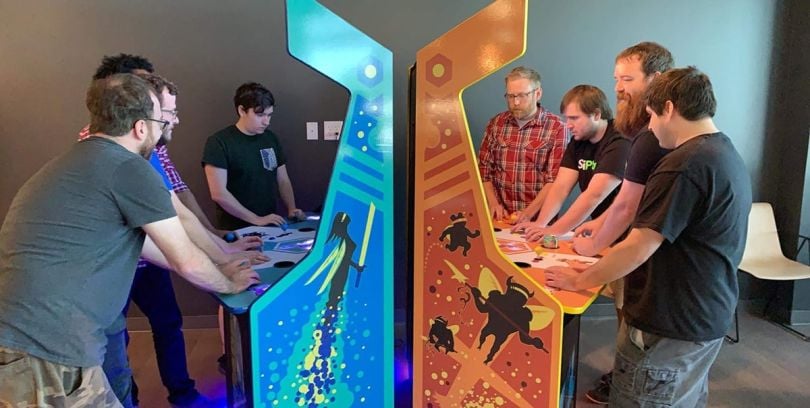
Sciplay is a developer and publisher of digital casino games.
What’s the biggest challenge your team faced as the company scaled? And how did you overcome it?
SciPlay has grown from 30 employees in Cedar Falls, Iowa, to more than 700 located in multiple offices across the world, including Tel Aviv, Israel and Austin. As we’ve scaled, our biggest challenge has been learning how to maintain and expand upon our unique culture. While we’ve evolved as a company, our dedication to putting employees first has consistently remained fundamental to who we are. Who we hire, how we train them and what their daily experiences consist of are paramount to our success. After all, it takes great people to make great games.
As we’ve welcomed a number of new companies into the SciPlay family — adding staff members from other countries, backgrounds and skills — we have preserved our culture by focusing on servant leadership that starts from the top. Every manager, no matter the level, serves the employees who report to them. This mindset enables us to integrate new team members seamlessly with a deep focus on supporting one another. Our criteria for hiring has also been critical to our success. While talent is extremely important, we don’t let it outweigh our cultural values. We evaluate potential candidates through the lens of 51 percent culture and 49 percent talent.
What’s been your “secret weapon” when it comes to scaling successfully?
We’ve welcomed more than 200 new employees since becoming a public company. Through it all, we’ve remained committed to our core value: “play together.” Rather than working in silos, we value collaboration and camaraderie as our secret to success. Our employees don’t just show up, do their tasks and clock out. They are invested in the teams they work with and games they create. In response, we support them with management training, career development opportunities and mentorship. When it comes to scaling successfully, the best investment we can make is in our people.
I embrace this value by prioritizing face time with our worldwide employee base. Even with travel limitations during the early stages of the pandemic, I spent a third of my time in each of SciPlay’s largest locations — Cedar Falls, Austin and Tel Aviv. It was during this time I chose to establish my roots in Austin while continuing to travel to each of our offices. It was certainly an adventurous start in Austin: I moved during the “snowpocalypse” and spent my first week without furniture. With a now fully furnished space as my home base in Austin, witnessing our global team grow has been nothing short of incredible.
Looking ahead, what will growth look like for your team?
Growth at SciPlay means growing our existing games — including their studios, worlds and teams — and developing new ones. Filling roles and enriching our teams with driven and passionate employees are central to achieving this growth. To keep up with the development and maintenance of our games, we plan to continue to scale some of our already fast-growing teams with engineers, analysts, product managers, quality assurance testers, data scientists and artists.
When it comes to scaling successfully, the best investment we can make is in our people.”
In Austin especially, we are growing our central technology team to support SciPlay’s global engine and optimize our infrastructure in a way that will keep us ahead of the curve on new gaming innovations. As we set out to become the number one mobile gaming company in the world, I am thrilled to partner with our talented teams in Austin and throughout the world to make this vision a reality.
Homeward is a home finance company.
What’s the biggest challenge your team faced as the company scaled? And how did you overcome it?
Staffing the right numbers for each of our production roles has been a challenge and journey to figure out. We’ve had the good luck of really positive market response to our company and products, which has meant a ton of fast growth. That resulted in a lot of our teams suddenly finding themselves understaffed and really stretched working overtime to keep up with the demand. A great problem to have, but not sustainable for the impacted teams!
This is a top priority for the leadership team to figure out, so in partnership with finance, people operations, talent acquisition and all the functional managers, we’ve worked out a really agile, adaptable hiring model and approach to ensure we can react to growth signals quickly and ensure our teams don’t experience long periods of being understaffed again. This team has been so resilient and focused on helping us all get smarter and make better decisions, and I’m so grateful to have had the partnership across the business to work on this really important need. Now, we meet monthly to update capacity assumptions, reforecast our hiring needs, understand the evolving needs of all production teams and keep in total alignment.
What’s been your “secret weapon” when it comes to scaling successfully?
I wish there was one secret weapon for scaling successfully! It is truly a cross team effort to ensure we meet our growth, scale and retention targets. A huge and very worthwhile investment for us this past year, though, has been Homeward’s people operations team inclusive of a killer talent acquisition (TA) department and learning and development department (L&D).
These two teams have been game-changing for us because scale here at Homeward requires a lot of really smart, engaged and capable team members. Finding the right ones at the right time is a tall order in and of itself, and our TA team has done an amazing job partnering with business leaders to ensure we’re finding the right teammates to join us on this journey. L&D has done extensive work to build out effective new hire onboarding programs, engaging new teammates — especially in a remote environment, making sure no one gets lost in the shuffle — and building thoughtful growth and development tracks for dozens of roles here. I am so proud of how Homeward has invested in its number one resource — our people!
Looking ahead, what will growth look like for your team?
I consider myself very lucky to have the awesome responsibility of growing one of the largest organizations here at Homeward, the operations team. There are lots of different specialized roles in our organization, and as Homeward continues to expand and grow our business, these ops teams are the ones that must grow along with our business volume. However, the people team’s growth will start to evolve to become smarter and more efficient — we have some amazing, talented offshore teams, and we partner closely with digital product and strategy teams to find new efficiencies in our processes and tools every day.
Along with headcount growth comes new opportunities for leaders to arise throughout the business. We’ve brought in some excellent industry leaders with tons of experience, but we also believe a lot in creating opportunities for new people leaders to step up and take on more! Partnership with L&D has been huge in creating paths for individual contributors with people management ambitions.
Growth for my teams means new markets, new products, new skill sets, new team members and new resources to support all of these. It’s going to be a hugely rewarding year.
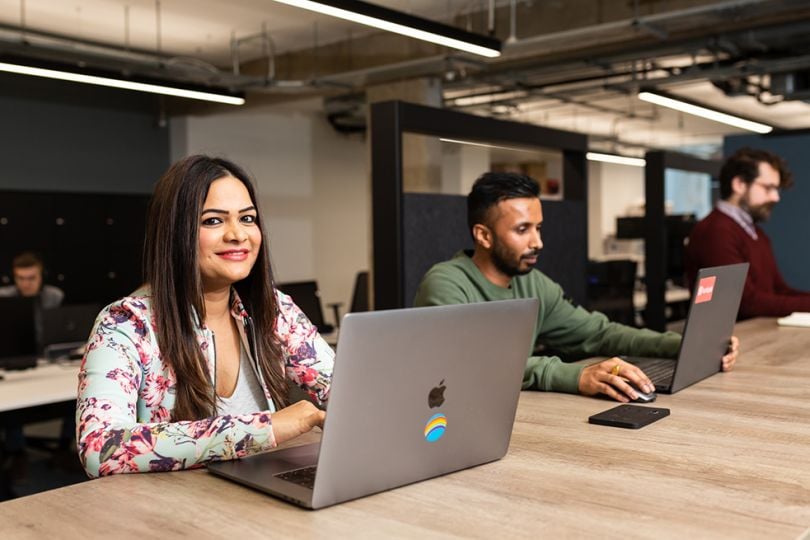
Indeed Flex is a staffing platform. Its parent company, Indeed, operates a website for job listings.
What’s the biggest challenge your team faced as the company scaled? And how did you overcome it?
The biggest challenge our team faced at Indeed Flex was entering a new space in the US. Indeed’s history has been in the recruitment marketing space, primarily focused on clients’ core hiring needs. On Flex, we are now targeting clients’ contingent hiring and learning about their relationships with staffing companies, which is a brand new pursuit for Indeed.
We overcame this challenge simply with time. The conversations we are having both with clients and our Indeed partners have helped us uncover the right opportunities for Flex.
What’s been your “secret weapon” when it comes to scaling successfully?
Indeed Flex is a partnerships-driven company, with a mission of helping people get jobs. The key to success at Indeed Flex is to focus on strong relationships with every partner we come across and to keep our mission of helping people get jobs at the forefront of our daily work.
Looking ahead, what will growth look like for your team?
Flex is a two-sided marketplace, with tech adoption from workers and clients. As we continue to grow tech adoption on both sides of the marketplace, all teams at Flex will continue to grow in a positive direction. This is especially true across our sales and operations teams; the more we grow, the more clients we’ll need to secure and the more workers we’ll need to hire as well. Our growth trajectory is on track to double in the US this year, so very exciting times lie ahead for us as a business!
We overcame this challenge simply with time.”

Orchard is a real estate platform for buying and selling houses.
What’s the biggest challenge your team faced as the company scaled? And how did you overcome it?
In just four years, Orchard has scaled to 13 markets and many families to buy their dream homes. With the amount of growth we’ve had, it is tough to pinpoint just one challenge. I would say the biggest overall challenge is for our team to prioritize and continually stay laser-focused on what the next problem is that we hope to solve.
There is a saying on our team: “What are you burning your calories on?” When scaling a company or team, there is always something on fire, and it’s easy to get distracted. The litmus test for us involves asking: “How is this project helping the customer, and how is this project helping our team?” If there is no clear answer or connection to those two questions, you have to ask, “Should I be focusing on this right now?”
My suggestion is to regularly communicate and review your goals, be honest on performance and make the necessary adjustments to make sure priority projects are getting done. Also, make sure you have clear ownership, deadlines and a realistic check on what resources are necessary to support the team. Lastly, fail fast and adapt. Commitment to excellence isn’t being perfect. It’s about getting better each and every day.
What’s been your “secret weapon” when it comes to scaling successfully?
When I was interviewing for my role, the number one ask I had of the executive team was if I could get a rockstar sales operations lead. The reason is that sales operations teams are the foundation of success and will determine how you scale. This team helps accelerate growth and performance. Sales operations defines your tech stack, systems and processes, reporting and enablement. I suggest every company invests in their process and operations.
In real estate specifically, it truly takes a village to transact. There are many moving parts and a lot of things that can make or break a transaction. You have buyers, sellers, listing agents, mortgage officers, transaction coordinators and more.
Origins of Orchard
At Orchard, we are focused on improving each part of the transaction, but want our customers to feel a seamless end-to-end experience from home shopping to moving into their dream home. One of the key metrics to which we hold ourselves accountable is net promoter score (NPS), which is a way to measure whether people would recommend us to their friends and family. We need to create a simple and consistent experience for our customers throughout their journey so they walk away from the experience as a raving fan!
There is a saying on our team, ‘What are you burning your calories on?’”
Looking ahead, what will growth look like for your team?
For Orchard, growth equals getting deeper in our existing markets, launching several new ones and expanding our product offerings. From a talent perspective, we have bold ambitions to create a company where people can grow their careers. We want folks to be proud to work here and to come away from their time at Orchard with new skills!
Part of that pride comes from understanding our mission statement. Buying and selling a home should not be as stressful as it was for my family. At Orchard, we are focused on how we can make the biggest impact in the real estate industry, and help people navigate one of the most stressful and important decisions they will make in their lives.
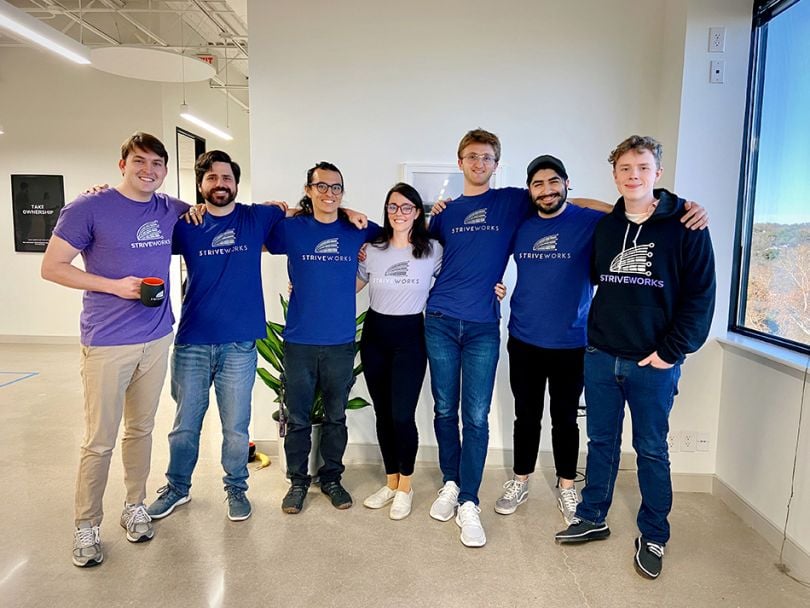
Striveworks is a data analytics company.
What’s the biggest challenge your team faced as the company scaled? And how did you overcome it?
One of our main points of focus was to ensure that we maintained our culture as we scaled. So many companies lose what makes them special as they grow, and we wanted to avoid that pitfall at Striveworks.
Our method was to dig in and understand what values we shared as a group. This process was an investment in time and resources across our teams, but we now have a clear definition that each of us believes to be important. These values give us a shared language, remind us of who we are and allow us to communicate ourselves authentically to the outside world.
Striveworks’ Set of Three Core Tenets
- Start with trust: Extend respect to all. Use candor consistently, kindly and constructively.
- Intersect passion and perseverance: Know the potential of our contributions. Find joy in hard work on things that matter.
- Take ownership: Have agency and take action. Feel individual responsibility for collective performance.
What’s been your “secret weapon” when it comes to scaling successfully?
Striveworks’ secret weapon is, without a doubt, our team.
A recent candidate interaction comes to mind when I think about why this is such a critical element to our continued team growth. In the final stage of our interview process, the candidate joined us onsite so we could welcome her to our office and give her a chance to interact with our team. During this onsite, the candidate told me that the passion her interviewers had for the company was both obvious and extremely compelling. When I think about that impression, I’m reminded that this is the talented group of individuals I get to work with every day. I believe more and more people are looking for that energy and connection in the workplace.
So many companies lose what makes them special as they grow, and we wanted to avoid that pitfall at Striveworks.”
In 2022, we were named as one of Built In Austin’s “Best Places to Work” on both the “Best Paying Companies” and “Best Small Companies” lists. This was especially rewarding because of the time and effort we put toward our culture and toward recognizing and rewarding employee contributions. We are committed to staying focused on these important activities, no matter how large we grow.
Looking ahead, what will growth look like for your team?
We’re an engineering-first company, and we will be more than doubling our engineering team this year. Striveworks’ core development team will see the most significant growth, and we’re specifically looking for Python and Go practitioners. Come join us!

Smarter Sorting is a consumer product intelligence company.
What’s the biggest challenge your team faced as the company scaled? And how did you overcome it?
With any small company there is a body of knowledge for how things get done. It’s natural for this knowledge to be present in the people who have been at the company for a while. There’s a problem with this. As we scaled — growing our business to add more clients — we needed more people. Soon, there was a good proportion of people with little or no shared history or company knowledge.
We found it a challenge to get the company knowledge codified and written down so new hires had a rich resource of intel. This unearthed another challenge. We realized Daniel knew everything about System X, Alyss knew a ton about System Y and Shawn was the go-to for System Z. What we thought was widespread and homogeneous knowledge was actually already in silos.
Overcoming “writing stuff down” took some effort. We asked our people to set aside time to outline the systems and processes, to define the acronyms and jargon. We looked to the experts of Systems X, Y and Z and had them do a brain dump of everything anyone would need to know. Coupled with a thorough onboarding process, it worked pretty well. And we also started to break down the internal silos.
What’s been your “secret weapon” when it comes to scaling successfully?
The “writing stuff down” initiative worked pretty well. But it wasn’t as great as we’d anticipated. There’s only so much people can learn by reading.
We had to get creative. We designed what we believed was our “secret weapon.” We augmented our codified company knowledge with a buddy and mentor system. The buddy was someone, probably in the new hire’s team, who knew all about the things they needed to know to get started. Then there was a mentor, who was probably in a different team, who gave the new hire an outlet to ask more general questions. The mentor could provide higher level company context and advice.
Then we actively created a safe space so people could ask the ridiculous questions! We even set an expectation that we want these questions asked. We call it “digging in.” We know some people may have imposter syndrome when they join a new company; they may feel like they have to deliver immediately. That’s not what we’re looking for. It’s not realistic.
To scale successfully we expect people to onboard quickly. But we’re not unfair about it. It took creativity to come up with the right program for us, and being honest with ourselves with what works and what doesn’t.
The ‘writing stuff down’ initiative worked pretty well.”
Looking ahead, what will growth look like for your team?
As our company grows, it’s increasingly evident we’re not a hardware company or software company. We’re a data company. Our focus on hiring reflects this. We’re looking for engineers who have built pipelines, platform services and APIs. We will always have a front-end team, it’s just we are going to have a higher ratio of platform engineers.
One challenge is shifting our mindset for everyone else on the team. We need to think of the data platform as a cohesive set of systems. It’s a mental shift to recognize what it means to have a data lake, internal systems to power it and a harmonized set of APIs which can be used for different segments of our customer base.
And yet again, to help with this shifting mindset, we need a safe space to ask ridiculous questions — because they’re not actually ridiculous questions. I asked someone 10 ridiculous questions this morning trying to help a colleague out with one of their systems. It can feel like I should really just know this because my title suggests I should, but no. I need to understand the problem we’re trying to solve. That’s how we get the best out of our brilliant people and diverse, growing team.
Atmosphere is a streaming service for businesses.
What’s the biggest challenge your team faced as the company scaled? And how did you overcome it?
Competition and brand awareness are huge challenges in this market. There are so many great companies in Austin that are looking for similar talent and Atmosphere is a relatively young brand. Once our audience learns who we are and where we’re going, they’re eager to come onboard, but we have to move quickly or we run the risk of losing great people.
What’s been your “secret weapon” when it comes to scaling successfully?
The candidate experience that we create plays a big role in us winning the talent war consistently. Everyone knows job searching is hard! So it sounds simple, but companies must create a candidate experience that is extremely empathetic and engaging from start to finish. Beyond discussing job duties, let candidates know timelines for interviews and hiring; be transparent about salaries and how you measure success; and introduce candidates to their potential work peers so they can get authentic insight into the role.
Looking ahead, what will growth look like for your team?
Atmosphere doubled in size in 2021 and has already doubled again in 2022! We have hired over 200 people year-to-date and expect to hire 150 more before the end of the year. We are looking for sellers at all levels — entry, mid-level, enterprise — engineers and content and media producers.
The candidate experience that we create plays a big role in us winning the talent war consistently.”
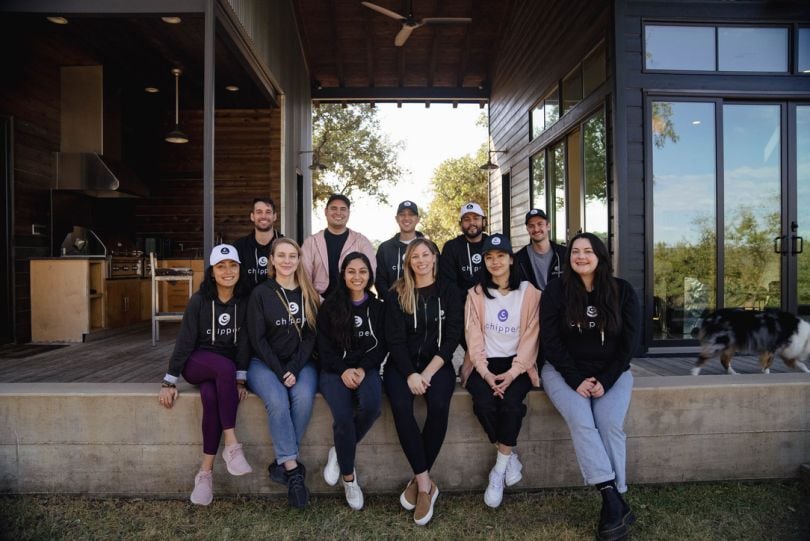
Chipper helps students manage their student loans.
What’s the biggest challenge your team faced as the company scaled? And how did you overcome it?
Three words: Leading with data. The startup life is about having some balance between being proactive and reactive. It’s about being data-driven and able to pivot when you see potentially powerful signals. This isn’t a novel challenge. One of the earliest conversations we had as a leadership team at Chipper was acknowledging that data analysis was the first thing that will get deprioritized, so we need to prioritize hiring a growth analyst.
We are ideators, so it’s so easy for us to create these fun and innovative ideas, look at the high-level successes and keep running with them so we can iterate and build on top of those successes. The challenge comes when we don’t “stop and smell the roses,” so our experiments become too complex, and we become too busy with the experiments that are delighting us instead of focusing on our customers. On top of that, we miss the story that the data is trying to tell.
We had to take a step back and ask ourselves as a team what we are trying to learn here, and why? We organized our experiments and realigned them with our brand’s core values. We became more intentional about what our voice is and who we want to hear it.
What’s been your “secret weapon” when it comes to scaling successfully?
Our biggest focus is on our culture and our people, because growth isn’t a straight line. Sure, we want to acquire users as fast and as cheap as possible — who doesn’t? But we don’t want to be a revolving door of teammates. We succeed and fail together through our collective ideas and experiments. We grow the product together, we build our brand together, we represent our community together. A long time ago, someone took a chance on me. He built me up from an idea that I had of myself, and we built brand after brand together — both successes and failures. When you invest in your people, your people invest in you, whether it’s in the tools that make their lives easier, or an appreciation for their mental wellness. The product isn’t going to build itself, and it certainly isn’t going to scale on its own.
Looking ahead, what will growth look like for your team?
This could be a few things for us. We want Chipper to be the go-to resource for student loan debt management for all student loan borrowers. As head of growth, I’m looking at how we can better provide value to our members, so that our referral program will lead our growth initiatives. That’s the dream, right? Frequent app engagements, higher lifetime value (LTV), lower customer acquisition costs (CAC). Everyone wants that user acquisition number to be on the upside, but I think the more important growth metric for us is the stickiness and longevity of the relationship.
But, we don’t want to be a revolving door of teammates.”
On the HR front, we’re always looking for good people! We’re on the hunt for engineering folks that have experience with Agile teams. Must love dogs.
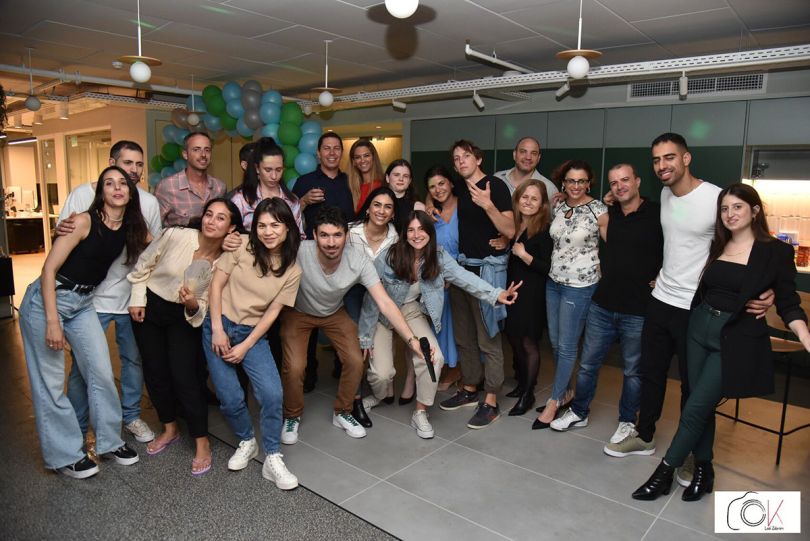
8fig is an ecommerce company that helps fund and scale businesses.
What’s the biggest challenge your team faced as the company scaled? And how did you overcome it?
Scaling over 600 percent in one year certainly led to us experiencing some growing pains, including the need to establish protocols where previously, simple communication would have sufficed. We quickly realized that in order to execute seamlessly and consistently, we’d need to implement processes for just about everything, so the challenge there was to stop romanticizing chaos.
What’s been your “secret weapon” when it comes to scaling successfully?
Every 8fig team member really believes in our mission of helping to democratize eCommerce, helping small and medium businesses scale on their own terms. It’s amazing to see our clients scale as 8fig scales, and finding colleagues who share that passion is non-negotiable. We sometimes joke that our main cause of turnover will be employees moving on to start their own stores, and you know what? We’ll be happy to fund those stores once they do!
The challenge there was to stop romanticizing chaos.”
Looking ahead, what will growth look like for your team?
Every single team at 8fig is growing, but the product, engineering and marketing teams in particular have aggressive growth goals for 2022 to 2023. Our growing team will mirror the team we already have in place: accountable, driven and focused creatives with a penchant for e-commerce and a soft spot for users.



